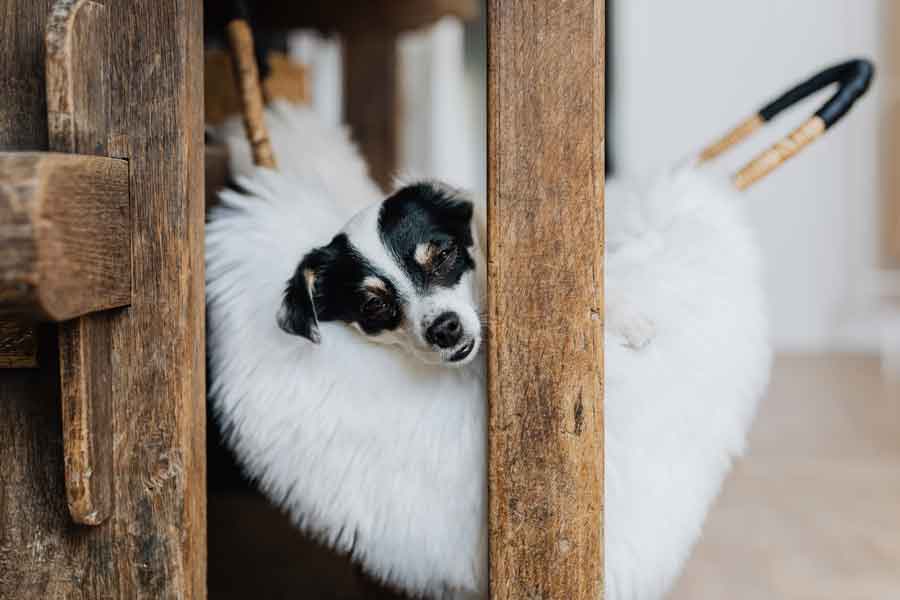JackRat [Jack Russell Rat Terrier Mix] Jersey Terrier Cross
If you’re curious about the charming and energetic JackRat dogs AKA Jack Russell Rat Terrier mix, then look no further! This article will provide you with all the essential information you need to know about these mixed dog breeds. From their unique characteristics to their temperament and care requirements, you’ll gain a comprehensive understanding of what it’s like to have a Jack Rat as your four-legged companion.
So, sit back and prepare to embark on a delightful journey into the world of these adorable Jack Russell and Rat Terrier mixes.
Fast Facts – JackRat / Jersey Terrier (Jack Russell Rat Mix)
| Average height | 12 to 15 inches |
| Average weight | 12 to 18 pounds |
| Lifespan | 12 to 16 years |
| Suitable for | Singles or Couples, Families with Kids, Active Seniors, Apartments |
| Temperament | Active, Guarding, Loyal, Smart |
| Good for families? | Yes, Need a proper Training |
| Other nicknames | Jersey Terrier, Jack-Rat |
Overview of the Jack Rat Dog Breed

The Jack Rat is a mixed breed that combines the traits of the energetic Jack Russell Terrier and the inquisitive Rat Terrier. This hybrid breed is known for its intelligence, agility, and friendly nature. Jack Rat dogs make great companions for active individuals and families, as they thrive in an environment that provides mental and physical stimulation.
In this article, we will delve into various aspects of the Jack Rat breed, including its origins and history, physical characteristics, temperament, health and care, training and socialization, feeding and nutritional needs, living arrangements and environment, compatibility with other pets, interaction with children, exercise and playtime, healthcare and vaccinations, and finding and adopting a Jack Rat Dog.
Origins and History
The Jack Rat breed originated from the United States, where breeders sought to combine the best traits of the Jack Russell Terrier and the Rat Terrier. Both parent breeds have a rich history, with the Jack Russell Terrier stemming from England and the Rat Terrier from early American farms.
By selectively breeding these two intelligent and energetic breeds, the Jack Rat came to be. While not recognized by major kennel clubs as a distinct breed, the Jack Rat has gained popularity as a beloved family companion and working dog.
Physical Characteristics
The Jack Rat has a compact and athletic build. They typically have a smooth or coarse coat that comes in a variety of colors, including white, black, brown, or a combination of these. Their expressive eyes are usually dark and alert, while their ears can vary from erect like the Jack Russell Terrier to semi-prick like the Rat Terrier.
The Jack Rat’s tail is often docked at an early age, in line with the tradition of the Rat Terrier breed. This mixed breed usually stands between 12 and 15 inches tall at the shoulder and weighs between 12 and 18 pounds, making them small to medium-sized dogs.
Temperament
Jack Rat dogs are known for their friendly and outgoing nature. They are often described as affectionate, sociable, and highly loyal to their owners. These dogs thrive on human companionship and form strong bonds with their families. Due to their Terrier lineage, Jack Rats can sometimes exhibit a strong prey drive and may chase small animals.
Early socialization is crucial to ensure they get along well with other pets and are comfortable in various social settings. With proper training and socialization, the Jack Rat can be a well-mannered and highly adaptable companion.
Health and Care for Jack Russell Rat Terrier Mix Dogs

Common Health Issues
Like all dog breeds, Jack Rats may be prone to certain health issues. While mixed breeds generally have fewer health problems than purebred dogs, it’s important to be aware of potential inherited conditions. Some common health concerns in Jack Rats include patellar luxation, dental issues, allergies, and hip dysplasia. Regular visits to the veterinarian, a balanced diet, regular exercise, and good dental care can help mitigate these health risks and ensure your Jack Rat remains in optimal condition throughout its life.
Grooming Needs
The grooming needs of a Jack Rat are generally low to moderate maintenance. They have a short coat that requires minimal brushing to keep it looking neat and healthy. Weekly brushing with a soft-bristled brush is usually sufficient to remove loose hair and prevent matting. However, during shedding seasons, more frequent brushing may be required. It is also important to regularly check and clean their ears to prevent infection and maintain good hygiene. As with all dogs, their nails should be trimmed regularly to avoid overgrowth and discomfort.
Exercise Requirements
As a mix of two highly energetic breeds, the Jack Rat has considerable exercise requirements. Daily exercise is essential to keep them physically and mentally stimulated, as a bored Jack Rat may resort to destructive behaviors. Aim for at least 30 to 45 minutes of vigorous exercise per day, which can include brisk walks, playtime in the yard, and interactive games. Providing them with puzzle toys, agility training, and opportunities for socialization with other dogs can also help to keep their active minds engaged. Remember, a tired Jack Rat is a happy Jack Rat!
Training and Socialization Jersey Terriers

Training Tips and Strategies
Training a Jack Rat requires consistency, positive reinforcement, and patience. These intelligent dogs thrive on mental stimulation and enjoy learning new commands and tricks. Basic obedience training should be started early, and socialization should be a priority to ensure your Jack Rat becomes a well-rounded and well-behaved adult.
Positive reinforcement techniques, such as treats, praise, and play, are highly effective in motivating and rewarding the Jack Rat during training sessions. Consider enrolling your Jack Rat in obedience classes or seeking the guidance of a professional dog trainer to ensure they reach their full potential.
Socializing Your Jack Rat Dog
Socialization is key to raising a well-behaved and confident Jack Rat. Expose your Jack Rat to various people, animals, environments, and stimuli from a young age. Introduce them to different sounds, sights, smells, and experiences to build their confidence and prevent fear or aggression issues in the future.
Regular playdates with other friendly dogs, visits to dog-friendly parks, and controlled interactions with children and strangers can help develop your Jack Rat’s social skills. By socializing your Jack Rat properly, you can ensure they grow up to be a happy and friendly companion in any setting.
Feeding and Nutritional Needs of JackRats
Choosing the Right Food
Feeding your Jack Rat a balanced and nutritious diet is essential to their overall health and well-being. Look for high-quality dog food that is specifically formulated for small to medium-sized breeds. The food should contain a balance of protein, carbohydrates, fats, vitamins, and minerals to meet their unique nutritional needs.
Avoid foods that contain artificial preservatives, fillers, or excessive amounts of grains. Consult with your veterinarian to determine the appropriate portion sizes and feeding frequency based on your Jack Rat’s age, weight, and activity level.
Feeding Schedule
Establishing a regular feeding schedule is important to help maintain your Jack Rat’s digestive health and prevent obesity. Most adult Jack Rats should be fed twice a day, with their daily food portion divided equally between meals. Puppies, on the other hand, may require more frequent feeding until they reach adulthood.
Monitor your Jack Rat’s weight and body condition regularly, adjusting the amount you feed accordingly. Remember to provide fresh water at all times and avoid feeding your Jack Rat table scraps or foods that are toxic to dogs, such as chocolate, onions, and grapes.
Living Arrangements and Environment

Ideal Living Conditions
Jack Rat dogs are well-suited to both apartment living and homes with secure yards. They are adaptable and can thrive in various environments, as long as they receive adequate mental and physical stimulation. While a fenced yard allows them to safely explore and play, regular walks and exercise outside of the home are still necessary to prevent boredom and stimulate their curious minds. Jack Rats are highly sociable dogs and prefer to be with their families, so they are best suited for households where they won’t be left alone for extended periods.
Suitability for Homes and Families
Jack Rats make excellent companions for individuals, couples, and families alike. Their small to medium size, combined with their friendly and sociable nature, make them well-suited for families with children. However, it is important to teach children how to interact appropriately with dogs, as Jack Rats may have a low tolerance for rough handling or excessive tail pulling.
Supervision is crucial when young children and dogs are together, ensuring the safety and well-being of both. With proper training, socialization, and love, a Jack Rat can easily become an integral part of any family.
Compatibility with Other Pets
Interactions with Dogs
Jack Rats generally get along well with other dogs, especially if they have been properly socialized from a young age. However, early introductions and controlled interactions are important to ensure positive experiences. Supervise your Jack Rat’s interactions with other dogs, especially initially, to prevent any potential conflicts.
By exposing them to various dogs with positive reinforcement and rewarding good behavior, you can foster good relationships and prevent any potential aggression or dominance issues.
Interactions with Cats and Small Animals
Due to their Terrier lineage and natural hunting instincts, Jack Rats may have a strong prey drive and a tendency to chase small animals, including cats and small pets. However, with proper socialization and gradual introductions, they can learn to coexist peacefully with cats and other small animals.
Monitor their interactions closely, provide proper training and guidance, and create separate spaces for each pet to ensure their safety and well-being. Remember, every dog’s personality and tolerance for other animals may vary, so it is important to assess each individual situation carefully.
Children and Jack Rat Dogs

Supervision and Safety
When it comes to interactions between Jack Rat dogs and children, supervision is crucial. Even though Jack Rats are generally friendly and good-natured, they are still small dogs and may be prone to injury if mishandled. Teach children how to approach and interact with dogs respectfully, emphasizing gentle touch and appropriate play.
Remind children not to disturb the dog during meal times or when the dog is resting. By setting clear boundaries and providing constant supervision, you can ensure the safety and well-being of both the dog and the child.
Breed-Specific Considerations
While Jack Rat dogs can make wonderful family pets, there are a few breed-specific considerations to keep in mind. Their Terrier heritage may make them prone to digging, so it is important to provide them with a designated area for digging or redirect their behavior to more appropriate activities.
Additionally, their high energy levels require regular exercise and mental stimulation. Incorporate interactive play, training sessions, and suitable toys into your Jack Rat’s routine to prevent boredom and destructive behaviors.
Exercise and Playtime for Rat Terrier Jack Russell Mix

Physical Activities
As a mix of two energetic breeds, the Jack Rat thrives on physical activities that challenge their agility and endurance. Daily exercise is essential to keep them happy and healthy. Interactive games such as fetch, tug-of-war, and hide-and-seek stimulate their natural instincts and provide mental stimulation.
Long walks, jogging, or hiking also provide an opportunity for them to explore their surroundings and burn off excess energy. Consider enrolling your Jack Rat in agility training or other dog sports to enhance their physical abilities and strengthen the bond between you.
Mental Stimulation
In addition to physical exercise, mental stimulation is equally important for the Jack Rat’s overall well-being. These intelligent dogs benefit from activities that engage their minds. Puzzle toys, treat-dispensing toys, and interactive games can provide mental challenges and keep them entertained.
Regular obedience training sessions not only reinforce good behavior but also provide mental stimulation and promote bonding between you and your Jack Rat. Consider incorporating scent work, obedience trials, or other brain-stimulating activities into their routine to keep their minds sharp and alert.
Healthcare and Vaccinations
Routine Vet Visits
Just like any other dog, Jack Rats require routine veterinary care to ensure their health and longevity. Regular check-ups are important to monitor their overall well-being, detect any potential health issues early on, and maintain up-to-date vaccination records. Your veterinarian can provide guidance on the appropriate vaccination schedule, parasite prevention, and necessary health screenings for your Jack Rat. Establishing a good rapport with a trusted veterinarian is essential to provide the best possible care for your furry friend.
Vaccination Schedule
Vaccinations play a crucial role in protecting your Jack Rat from preventable diseases. Consult your veterinarian to develop a customized vaccination schedule based on your dog’s risk factors and lifestyle. Typically, core vaccines for dogs include rabies, distemper, parvovirus, and adenovirus.
Non-core vaccines, such as those for Lyme disease or Bordetella, may be recommended depending on your geographical location and your dog’s potential exposure. Remember to keep a record of vaccinations and schedule regular booster shots to maintain your Jack Rat’s immunity against infectious diseases.
Finding and Adopting a Jack Rat Dog
Rescue Organizations and Shelters
If you are considering adding a Jack Rat to your family, one option is to adopt from a rescue organization or animal shelter. Many rescue groups specialize in specific breeds, including mixed breeds like the Jack Rat. Check with local shelters, rescue organizations, or breed-specific rescues to see if they have any Jack Rats available for adoption. Adopting a dog allows you to provide a loving home to a pet in need while also saving a life.
Breeders and Adoption Centers
If you prefer to acquire a Jack Rat puppy from a breeder, it is important to do your research and find a reputable breeder. Look for breeders who prioritize the health, temperament, and overall well-being of their dogs. Visit the breeder’s facility in person to ensure they maintain clean and ethical breeding practices.
Ask about the health clearances and genetic testing conducted on the parent dogs to minimize the risk of inherited health issues. Responsible breeders will also provide you with documentation, such as health records and pedigrees, to ensure the lineage and health of your new Jack Rat puppy.
In conclusion, the Jack Rat is a mixed breed that combines the best traits of the Jack Russell Terrier and the Rat Terrier. These friendly and highly intelligent dogs make great companions for active individuals and families who can provide them with the mental and physical stimulation they need.
From understanding their origins and history to ensuring their healthcare and finding the right environment for them, this comprehensive article has covered all the essential aspects of owning a Jack Rat Dog. Whether you choose to adopt or acquire a Jack Rat from a breeder, with proper care, training, and love, your Jack Rat can become a cherished member of your family for years to come.
FAQs about Jack Rat Mixes
How big does a Jack Russell Rat Terrier Mix get?
Jack Rat Terrier mix creates a medium-sized dog. Typically, their height is around 12-15 inches and 12-18 pounds in weight. They have a strong body structure with short and tightened muscles.
Are Jack Rats aggressive?
Yes, they could be highly aggressive if they didn’t get proper socialization and training at their young age. You may see frequent growling towards other pets at home. However, they are loyal and obedient to the family. Sometimes, Jack Rats can become destructive and noisy barkers when they don’t have enough activities to do.
Are Jersey Terriers stubborn?
Yes, sometimes. When you don’t have enough time to spend with them, they get discouraged. Then they start to act weirdly. Also, sometimes they expect to do what they want. But the best thing is, all the stubborn actions will fade away when you give something to eat or give a hug.
Are Jack Russell Rats guard dogs?
Yes, of course. They are medium-sized dogs with solid body structures. Their history shows that both of the parent dogs used to be hunting dogs and guard dogs. Therefore, Jack Russell and Rat Terrier mix create a strong guard dog. Typically, they are not that noisy. However, when there is a threat, they will guard you. They have also got qualities of being good guard dogs such as attentiveness, intelligence, and courage.
How often should you wash a Jack Russell Rat Terrier Mix?
They don’t have a stronger doggy smell like some other dogs that have a double-layered coat. It means you don’t need to wash them frequently. However, their coats need to be regularly brushed and maintained. This is a big plus of adopting a Jack Rat. You can train them to swim as well.
How much exercise do Jersey Terriers need?
Jack Russell and Rat Terrier Mix dogs have qualities of Jack Russell Terriers and Rat Terriers half to half. So, they may be highly active and energetic. Therefore, it’s advisable to give them at least 30-40 minutes of regular exercise daily.
What are the common Health issues Jersey Terriers has?
Jack Rats are typically healthy dogs. Their major health concerns are deafness, eye problems, allergies, and incorrect bites. There is also a possibility of having patellar luxation, skin infections, and Legg-calve-Perthes disease with their old age.
Do Jack Rats get along with other pets?
Yes, of course. They love to play with other pets. However, they need good training at their younger age to avoid some destructive behaviors. Otherwise, they could get messy around with other pets.
Are Jack Russell Rat Terrier mixes good for families?
Yes, they are suitable for families. However, it is not advisable to raise a Jack Rat with small kids. Typically, they are so gentle with kids. Although, they can be aggressive when their temper goes higher. Jack Rats will play with you the whole day. And also, if you don’t want to go out, he knows to lay on the couch for days without making a noise. They quickly adapt to the situation because of their high intelligence.
How much do Jack Rat puppies cost?
Jack Rat mix puppies’ cost could be 400$ to 700$ (550-900 Euros) depending on their health, color, and size. There is a possibility that Jack Russell Rat Terrier mix puppies get different appearances even within the same litter. Therefore, negotiate with the breeder or the seller and compare the prices before you buy. Also, you will need some extra bucks in hand for initial expenses like tests, shots, deworming, chipping, carrier, collar, toys and leash.
How long dog Jack Russell Rat Terrier Mix live?
Jack Rats have got 12-16 years of average life expectancy as their parent breed. Read about Jack Russell Terrier’s lifespan and Rat Terrier’s lifespan. However, they are susceptible to heavy weather and sicknesses. Therefore, your proper care and attention will give them a maximum lifetime.

![JackRat [Jack Russell Rat Terrier Mix] Jersey Terrier Cross](https://jackrussellowner.com/wp-content/uploads/2021/03/Jack-Russell-and-Rat-Terrier-Mix-Jack-Rat-Facts-Pics-and-More.jpg)





![Jack Russell Corgi Mix [Cojack / Corki] Cross Dog Breed](https://jackrussellowner.com/wp-content/uploads/2021/04/Cojack10-768x512.jpg)
